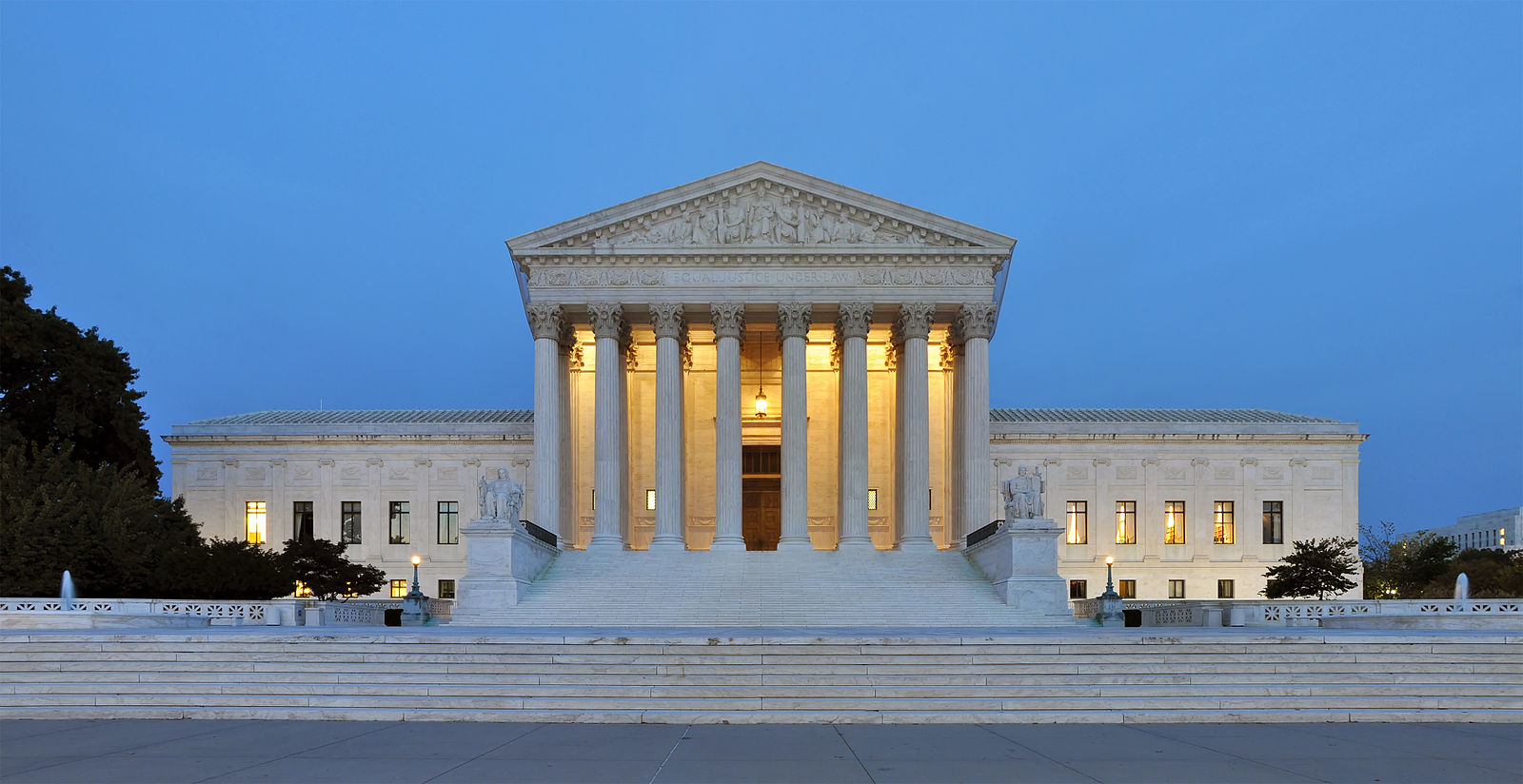In the View of the Supreme Court, Alan Dershowitz Is Wrong About the Powers of the President
Alan Dershowitz, in a series of recent op-eds, has taken to arguing in his characteristic take-no-prisoners style that the whole issue of whether President Trump might have obstructed justice is a red herring. Even if the President ordered James Comey to shut down the Flynn investigation and had a corrupt intent for doing so, this would still not amount to the crime of obstruction of justice.

Alan Dershowitz, in a series of recent op-eds, has taken to arguing in his characteristic take-no-prisoners style that the whole issue of whether President Trump might have obstructed justice is a red herring. Even if the President ordered James Comey to shut down the Flynn investigation and had a corrupt intent for doing so, this would still not amount to the crime of obstruction of justice. The reason, according to Dershowitz, is that the Constitution gives the exclusive power to the President to control all federal law-enforcement investigations—and thus to shut any of them down for any reason the President sees fit. In other words, the President can never commit obstruction of justice by shutting down a criminal investigation or prosecution.
But Dershowitz fails to take into account that the Supreme Court has decisively rejected this view. In Morrison v. Olson (1988), a 7-1 Supreme Court turned back constitutional challenges to Congress’ creation of the Act that gave us the office of the Independent Counsel—and in doing so, dismissed exactly the argument that Dershowitz now seeks to invoke.
The Ethics in Government Act was created out of the recognition that the President should be taken out of the process of controlling investigations and prosecutions that involved potential crimes by himself or high-ranking government officials—i.e., close aides of the President. As the Supreme Court thought was obvious, “Congress, of course, was concerned when it created the office of independent counsel with the conflicts of interest that could arise in situations when the Executive Branch is called upon to investigate its own high-ranking officers.”
The Act created a process that could lead to the appointment of an Independent Counsel for this role, and the entire point of the Act was to insulate the Independent Counsel—and hence the investigation and prosecution of crimes involving the President and his or her top aides—from the President’s complete control. The Act essentially put the powers of the Department of Justice in the hands of the Independent Counsel: it vested him or her with the "full power and independent authority to exercise all investigative and prosecutorial functions and powers of the Department of Justice [and] the Attorney General."
Then, to even further ensure that the President not have unfettered control when potential crimes involving himself and his top aides were at stake, the Independent Counsel, once appointed, was wrapped in several layers of additional insulation from presidential control. Thus, the only person who could remove the counsel from office was the Attorney General—and, very importantly, the Attorney General could only do that for limited and specific reasons (“good cause”), such as misconduct in office or inability to perform the counsel’s duties.* If the Attorney General did remove a counsel, the AG had to file a report with Congress and the courts stating the factual basis for this removal. And as yet further protection of the Independent Counsel, the federal courts—which were given the power to reinstate an Independent Counsel who had been illegally removed—would be the ultimate adjudicator of whether any removal was in fact for good cause.
In Morrison, the Act was challenged on the ground that it violated the separation of powers because it took unfettered investigative and prosecutorial control over these politically sensitive potential crimes out of the President’s hands. But in firmly rejecting that challenge, the Court held that the President’s constitutional powers were not violated by cabining his control over the investigation and prosecution of crimes involving himself and his top aides. The Act and the Court’s decision reflected the common sense understanding that the President has an inherent conflict of interest when he or his top aides are potential subjects of criminal investigation—and that nothing in the Constitution gives the President the power to completely control those investigations or shut them down.
So the premise of my friend Alan Dershowitz’s argument is wrong: the President does not have unfettered constitutional power to decide whether to shut down criminal investigations of his top aides for any reason. As the Supreme Court concluded, “we simply do not see how” it is “so central to the functioning of the Executive Branch as to require as a matter of constitutional law that” the President be understood to have unlimited control over the investigation and prosecution of potential crimes involving himself or his top aides. Given the established constitutional principle that Congress can protect a federal prosecutor from the President’s domination in these type of cases, Congress can certainly constrain the President’s power in more limited ways—to protect the integrity of these very investigative and prosecutorial processes—including by making it a crime for the President to act with a corrupt intent to stymie or shut down investigations of the President himself and his top aides.
Dershowitz’s mistake is to confuse what might be true in run-of-the-mill federal cases, where the President arguably has ultimate control over prosecutorial decisions, with potential criminal matters involving the President’s top aides—which the Supreme Court has concluded can be taken out of the President’s complete control, given the obvious conflict-of-interest.
Dershowitz does rightly point out that the President could pardon Michael Flynn. And if he can do that, says Dershowitz, what’s the difference in ordering the investigation to be shut down instead? To be sure, there’s a bit of a paradox in that. But an exercise of the pardon power is a fully public act, for which the President is publicly and politically accountable. For a President behind the scenes to put pressure on federal law enforcement officials to stop an investigation or prosecution into his top aides—or even to order them to do so—is a far more dangerous use of power, precisely because it might very well remain more obscured.
As a practical matter, we know that the Independent Counsel system was a mess in implementation (for example, the threshold for initiating the appointment of such a counsel was much too low), which is why Congress decided to abandon it as a policy matter. But as a matter of understanding how our Constitution is structured, Morrison nonetheless stands for the principle that Congress can take the investigation and prosecution of certain crimes—those involving the President and his or her top aides—out of the President’s complete control. From that it follows that Congress can take the lesser step of addressing precisely the same conflict-of-interest public policy concerns by denying the President the power to act with a corrupt intent to interfere with these investigations. Needless to say, ordering them to be shut down with this intent would certainly constitute interference.
Even if Congress can criminalize presidential obstruction of justice in cases involving his top aides, one might argue that any such statute must expressly make this clear, including by stating explicitly that the President is covered. And there is a longstanding debate about whether a President can be criminally prosecuted while in office, or whether the impeachment process is the sole route through which a President can be held accountable, even for the commission of crimes.
None of that matters, though, to Dershowitz’s claims. Instead, Dershowitz wants to end all talk of possible obstruction of justice by arguing that the Constitution makes it impossible for any President ever to be guilty of such a crime—even if he acts with a corrupt intent to shut down a criminal investigation into the President or his top aides. But the Supreme Court has established that the Constitution is not so foolish as to reflect any such principle. Perhaps Dershowitz wants to shift gears and take issue with the Supreme Court (many academics have criticized Morrison). But under the constitutional law that we have, Congress can make it a crime for the President to obstruct justice by acting with a corrupt intent to shut down criminal investigations and prosecutions of the President and his or her top aides.
* In the terms of the Act, removal was permitted only for “good cause, physical disability, mental incapacity, or any other condition that substantially impairs the performance of such independent counsel's duties." The committee report from the House described the "good cause" limitation as "protecting the independent counsel's ability to act independently of the President's direct control" since it permits removal only for "misconduct." The Court has also made clear that “good cause” removal constraints do not permit removal based on simple disagreement with the policy judgments or priorities of an official who is protected by a “good cause” provision. Free Enterprise Fund v. Public Company Accounting Oversight Bd., 561 U.S. 477 (2010).



.jpeg?sfvrsn=c56aabb1_5)

